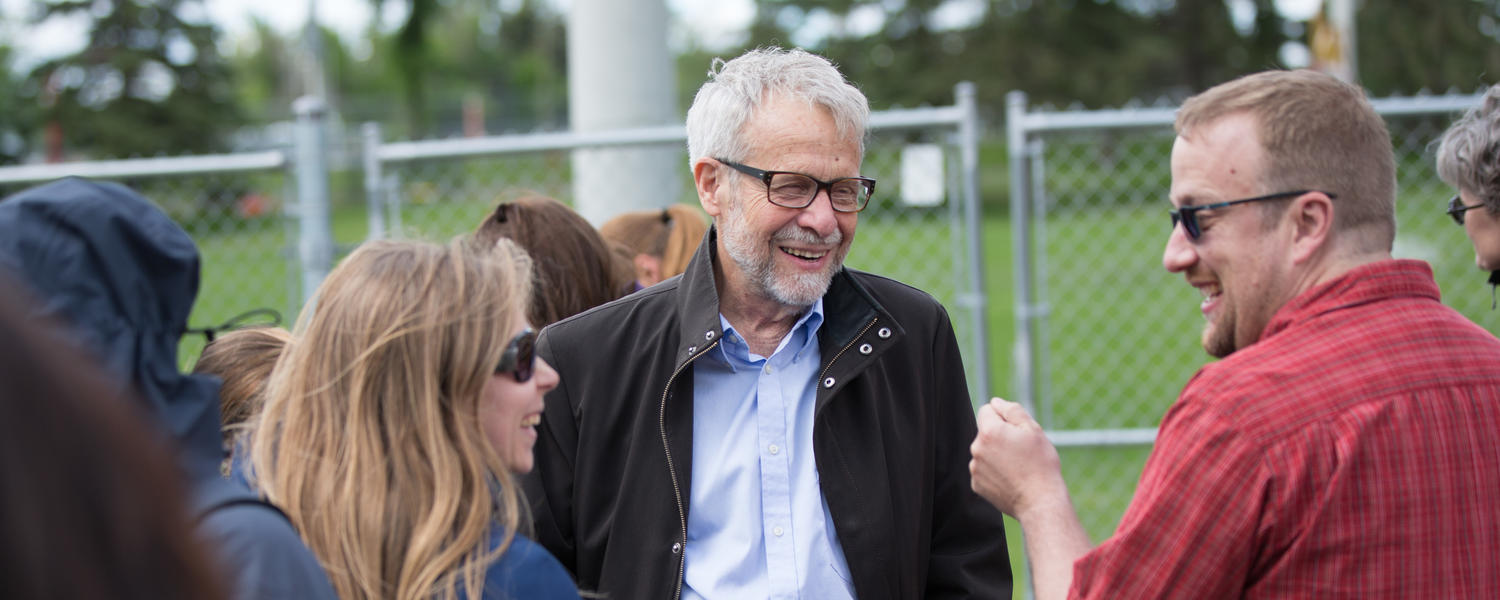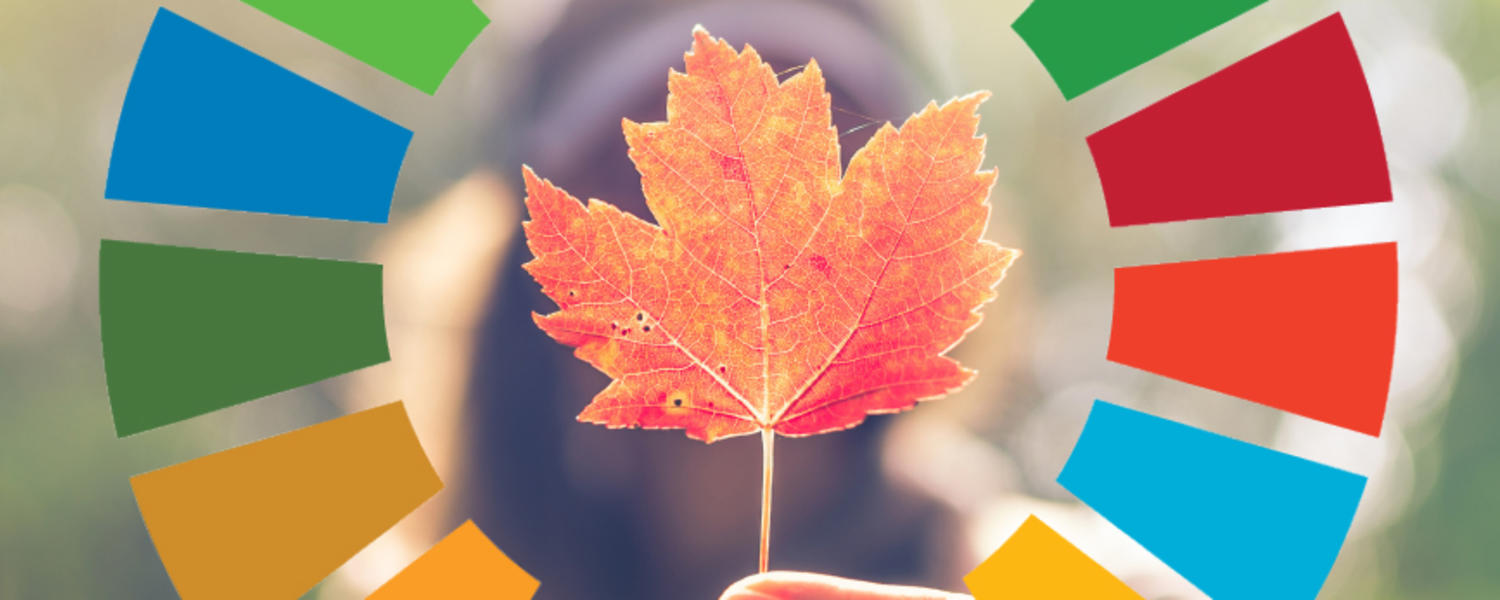Partnerships for the Goals
Government of Canada Funded Projects
Andres Gomez Blanco – SDG Best Practices Review of THE UIR Top 25 Institutions
The University of Calgary continuously aims to improve our performance in the UIR while advancing the SDGs. This purpose of this project is to analyse the UIR top performing institutions globally and in the U15, along with the ranking itself, to determine how UCalgary clean learn from leading institutions and their practices in the coming years.
Jay-Anne Mandingin – Sustainability Bonds
The project focuses on generating a case study on sustainability bonds and their relevancy to post-secondary institutions for submission to a scholarly journal.
Celine Xiao – MacKimmie Tower Energy Assessment
This project assessed the performance of the new double-façade MacKimmie Tower, the first UCalgary project certified under the Canada Green Building Council’s Zero Carbon Building standard.
Richard Lushai – Hand Hygiene
W21C is continuing the development of an open-source tool to encourage good hand hygiene practices. The tool "rewards" the user with the appearance of an icon (i.e., a colorful hand symbol) on a screen every time the hand sanitizing dispenser is used. In addition, the use of the dispenser is recorded and transmitted to a data collection tool in order to monitor battery life and collect information on frequency of use, user habits, etc. Hand sanitation is key to reducing infections. This technology has potential applications in hospitals, long-term care facilities, and many other locations where hand hygiene is important. The design is open-source, meaning instructions for replicating this device are freely available online, and components have been designed to be low-cost and widely available. In addition, this visual tool has been shown to create community engagement in hand hygiene practices.
Genevieve Davis – Simon Farm
The project forwards work on the SDGs, specifically addressing goal 2 (Zero Hunger) directly and indirectly addressing goals 3 (Good Health and Well-Being), and 15 (Life on Land). Broadly, the project looks to address the following related research questions:
1) How has the pandemic affected the makeup of High River foodbank clients and the clients themselves?; and 2) How has the pandemic affected the operations at the High River Foodbank? Themes we expect to explore include increased demand for services, where support for the foodbank comes from, access to staff and resources, government support and long-term sustainability of foodbank operations.
Gideon Choi – Lab Waste
This project will suggest potential improvements to the University’s existing lab waste diversion program with an aim to significantly reduce the landfill waste generated by the research laboratories. This study will play a role in informing best-practice sustainability approaches at Higher Education Institutions, particularly those that conduct natural science research. Principles of this study can also offer guidance in reducing waste from laboratory and health institutions – an issue that has gained particular relevance during the COVID-19 pandemic.
Katherine Lui - SDGA
The purpose of this research project is to understand the impact of Sustainable Development Goals Alliance (SDGA) initiatives on student knowledge, awareness, and capacity to advance the SDGs, and to inform the future directions of the SDGA. This study will explore the impressions and experiences of students who have engaged with the SDGA more broadly, by attending events, interacting with social media, or serving as an individual or club member of the SDGA. A qualitative phenomenological framework will be used for this research.
Kruti Mukesh – Reducing Single-Use Plastics
This research project will result in a strategy for reducing and subsequently eliminating use of single-use plastics on the campus. This research will contribute directly to the University's Recycling & Waste Management Zero Waste Strategy Plan.
Tyler Warnock – SDGA
This study seeks to explore the impact of the Sustainable Development Goals Alliance (SDGA) on SDGA Executive members during their time at the University of Calgary. The purpose of this study is to inform the growth and development of future student-run engagement initiatives for the SDGA (“program”) and to understand the experiences of students who served in executive roles with the SDGA. This will be achieved by collecting information that captures the experiences that prior SDGA Executives have had with the program and key program impressions. The study will follow a phenomenological framework in order to capture the experiences that students have had in their participation in the program.
Yuesong Ding – Sustainable Procurement
The research will explore sustainable procurement in Canadian public organizations, examining if practices differ from the private sector and what can the public sector learn. Through this investigation, the research will identify best practices for sustainability procurement in information technology, construction, corporate services and medicine & research.
Vaidehi Petri – MacKimmie LCA
The purpose of the research is to complete a whole-building life cycle assessment in support of the MacKimmie Complex Redevelopment project LEED certification. Through this life cycle assessment, the research will quantify the reduction in life cycle impacts compared to a baseline building following the methodology outlined in the LEED for Building Design and Construction v4 Rating System credit Building Life Cycle Impact Reduction.
Kulsum Fatima – Water Literacy
The objective of this research is to develop a framework and recommendations to create awareness and enhance user experience towards existing water systems on the UCalgary Main Campus. The framework will investigate the prevailing best practices for water literacy implemented at leading higher education institutions, and will develop recommendations for the UCalgary Main Campus. This framework will highlight the experiential learning aspect attached to water systems, which are critical to our understanding as we move through the campus. It will propose strategies and recommendations for developing water literacy in order to inform users and induce good water use behaviors.
What is sustainability?
-
Sustainable Development Solutions Network Canada
Hosted by the University of Waterloo in partnership with the Waterloo Global Science Initiative, University of Calgary is a member of the Sustainable Development Solutions Network Canada. SDSN Canada is focused on developing an SDG research agenda for Canada, cultivating high-quality SDG-education, and galvanizing support throughout the country to achieve the SDGs.
-
Interdisciplinary Sustainability Research Network
Hosted by the University of Calgary, the Interdisciplinary Sustainability Research Network connects sustainability researchers with support and resources to facilitate their work.
-
AASHE
The University of Calgary has been a member of the Association for the Advancement of Sustainability in Higher Education (AASHE) since 2006. AASHE's mission is to inspire and catalyze higher education to lead the global sustainability transformation. UCalgary also reports to AASHE's Sustainability Tracking Assessment and Rating System (STARS).
-
Interdisciplinary Sustainable Agriculture Network
By bringing together faculty members, community members and industry specialists UCalgary has launched the Interdisciplinary Sustainable Agriculture Network (ISAN) as a platform for the university community to interact with the wider community to exchange and share ideas and to create learning opportunities on sustainable agriculture in Western Canada in an open, respectful and inclusive space.


